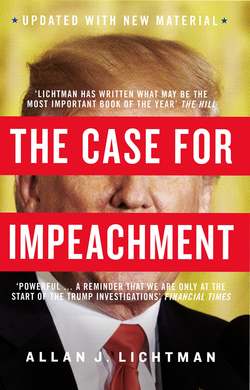Читать книгу The Case for Impeachment - - Страница 15
AMERICA’S FOUNDERS STRUGGLE WITH IMPEACHMENT
ОглавлениеAfter what George Washington called the “standing miracle” of his victory over British arms, the general retired to his Mount Vernon plantation. Bouts of smallpox, tuberculosis, malaria, and dysentery and years of tense warfare had racked his body, leaving him prey to debilitating aches and fevers and a “rheumatic complaint” so severe at times that he was “hardly able to raise my hand to my head, or turn myself in bed.” Yet in 1787, Washington donned his best breeches and frock coat, powdered his hair, and pushed his body to serve his country again: this time as the indispensable president of a constitutional convention in the sweltering Philadelphia summer.3
In the span of just over a hundred days, the delegates created a radically new frame of government powerful enough to protect and preserve their fledging republic, but one with enough checks and balances to safeguard against the tyranny that Americans had endured under British rule. These learned but pragmatic politicians adhered to the later warning of John Adams that: “Men are not only ambitious, but their ambition is unbounded: they are not only avaricious, but their avarice is insatiable.” Therefore, “it is necessary to place checks upon them all.”
The framers adopted impeachment as a necessary check against tyranny. “Shall any man be above justice?” asked the influential Virginia delegate George Mason. He warned that it is the president “who can commit the most extensive injustice.”4
Although they agreed on the need for impeachment, the delegates struggled with defining the grounds for indicting and removing federal officials. During the convention debates, to specify the criteria for removing a president, delegates used such disparate terms as “great crimes,” “malpractice or neglect of duty,” “corruption,” “incapacity,” “negligence,” and “maladministration.” They finally cast their vote for “high crimes and misdemeanors against the state,” then dropped the “state” qualifier, which both broadened and obfuscated the meaning of the impeachment.5
